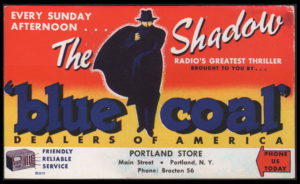
When war was declared by the U.S. Congress after the attack on Pearl Harbor on Dec. 7, 1941, the entire nation was quick to rally to support the cause, including The Shadow radio broadcasts. During the war years, The Shadow‘s adventures included skirmishes with Axis spies and saboteurs, mixed in with the usual blood-and-thunder fare.
But it wasn’t just the plots of the stories that reflected the war. No, the sponsor, Blue Coal, did its part as well. Below are pages of some scripts that illustrate how Blue Coal supported the war effort on the Shadow radio program.
This was opening commercial for the Sept. 26, 1943, broadcast of The Shadow. Before listeners became enthralled with “The Gibbering Things” they heard this pitch to help conserve coal for the war effort.
At the end of “The Return of Anatole Chevanic,” on Feb. 1, 1942, faithful listeners were presented with this playlet promoting defense bonds and defense stamps. And The Shadow bought his share, too!
Everybody was encouraged to pitch in for Civilian Defense. We were all in this together. This was the closing commercial from Feb. 15, 1942, episode titled “Death Speaks Twice.”
In 1942, citizens of the U.S. had to register their tires. Who knew? I knew there was gas rationing. And rubber shortages required tire rationing, too. But registering your tires? It was news to me! This commercial came from the end of “Star of the Orient,” the Nov. 15, 1942, broadcast.
I guess this was a good excuse for not going to visit your in-laws for the holidays. “But, honey, it said on the radio that we should stay home!” And what patriotic wife could find fault with that? This was from the Dec. 13, 1942, broadcast of “The Bells Toll Death.”
Loose lips sink ships. That was a common theme during the war, as this commercial from The Shadow demonstrates. Even The Shadow himself reminds listeners that “Careless talk costs lives!” This was the closing commercial on Jan. 10, 1943, for the episode “The League of Death.”
V-mail. An interesting system from a pre-digital age. You used standard- sized V-mail stationery, then took it to your post office. Censors read it and blacked out any sensitive information. The letter was then photographed, and the film was shipped overseas. Upon arrival at the war front, the film was printed back onto paper, and the V-mail was delivered. This unusual method of delivery resulted in enormous savings in weight, conserving valuable space on cargo ships for war materials.
This war announcement was from Jan. 31, 1943, and closed the episode titled “Secret Weapon.” This was one of my favorite Shadow episodes, in which The Shadow battles Nazi zombies. Yes, you read that right… Nazi zombies! And there was no explaining it all away at the end. The evil Nazis had actually discovered the secret of raising the dead and forcing them to become front-line soldiers who couldn’t be killed… because they were already dead! The Shadow prevails in the end, of course. Great episode!
The patriotic thing to do is… clean your furnace! With coal still in short supply, anything you could do to stretch your coal supply helped win the war. This patriotic announcement came from the Sept. 24, 1944, broadcast of “The Ebony Goddess.”
World War II ended on Aug. 15, 1945, and soon coal was once again plentiful for all of America. Once more John Barclay would extol the virtues of coal over other heating methods, and encourage you to buy more coal. But for the four years that America took part in the war, Blue Coal joined in the patriotic ranks with the rest of the country and urged everyone to conserve badly needed war materials.
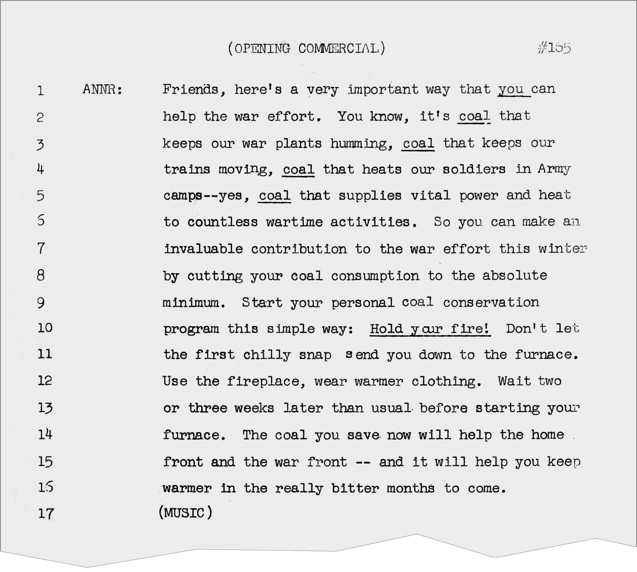
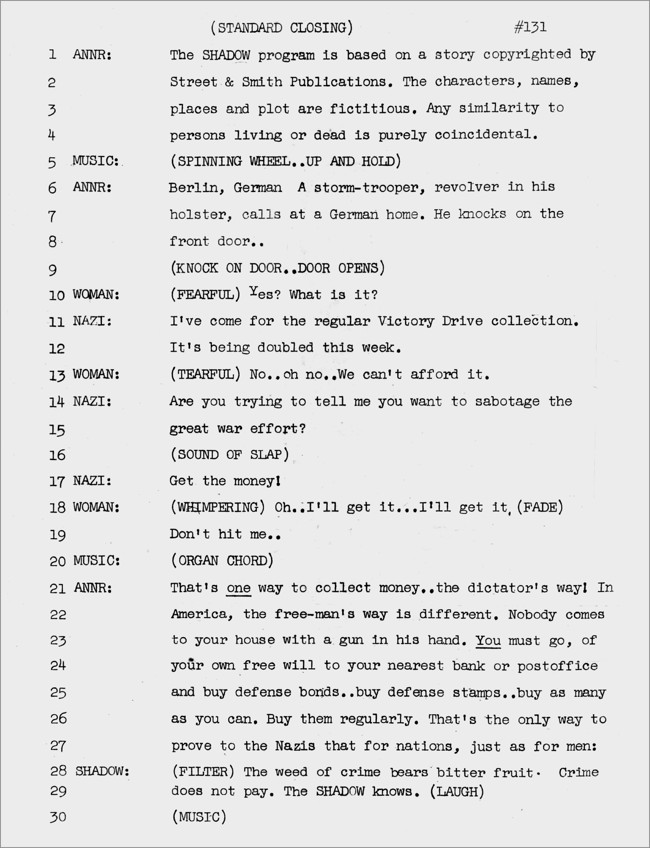
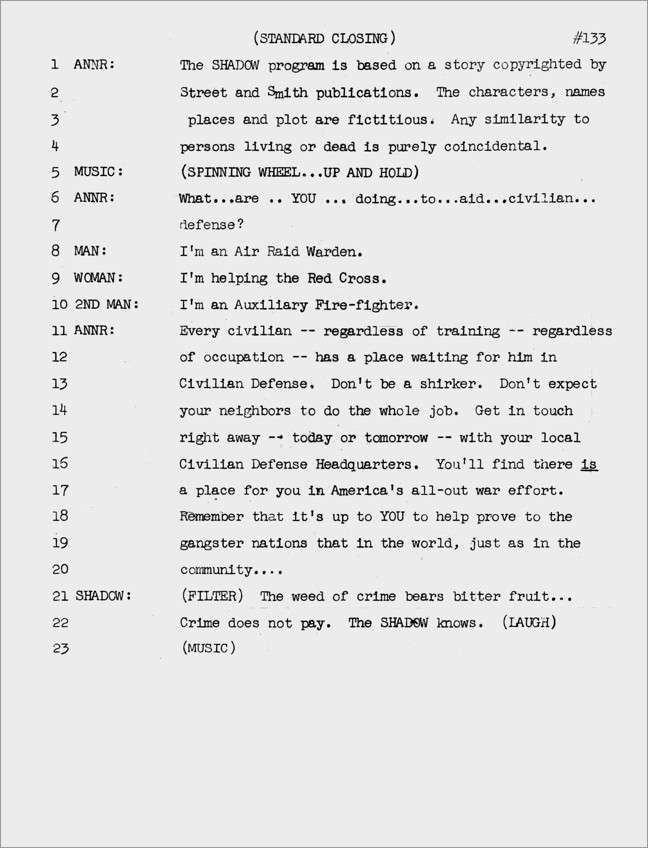
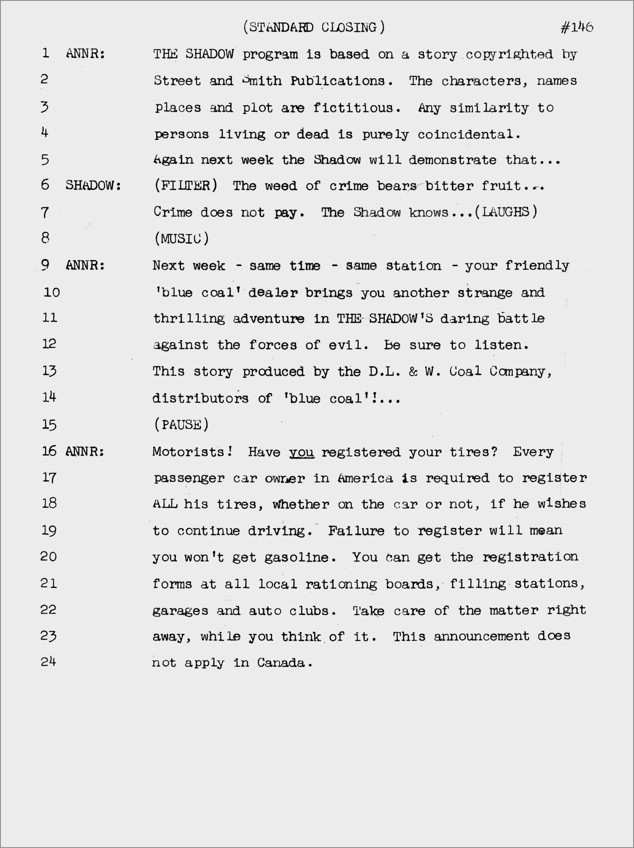
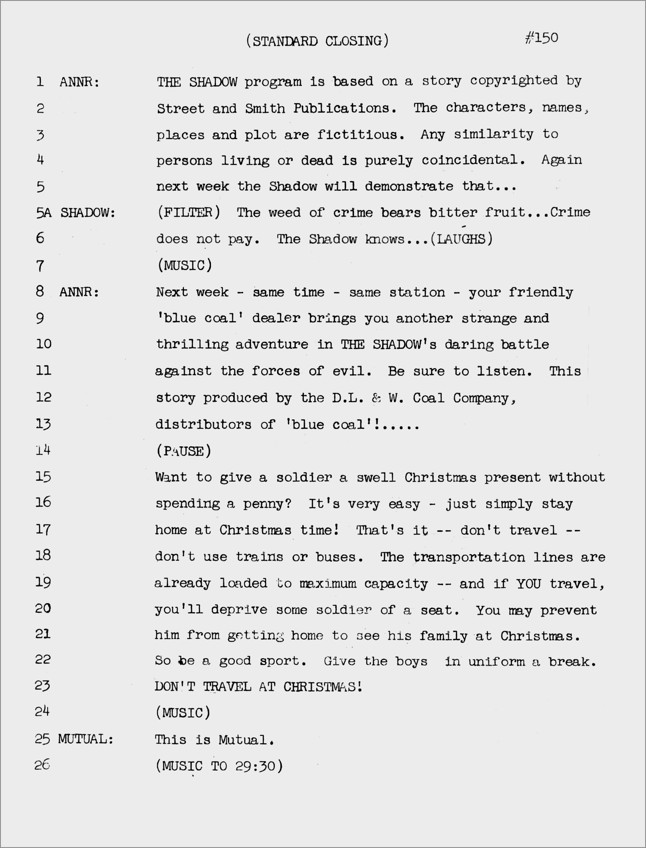
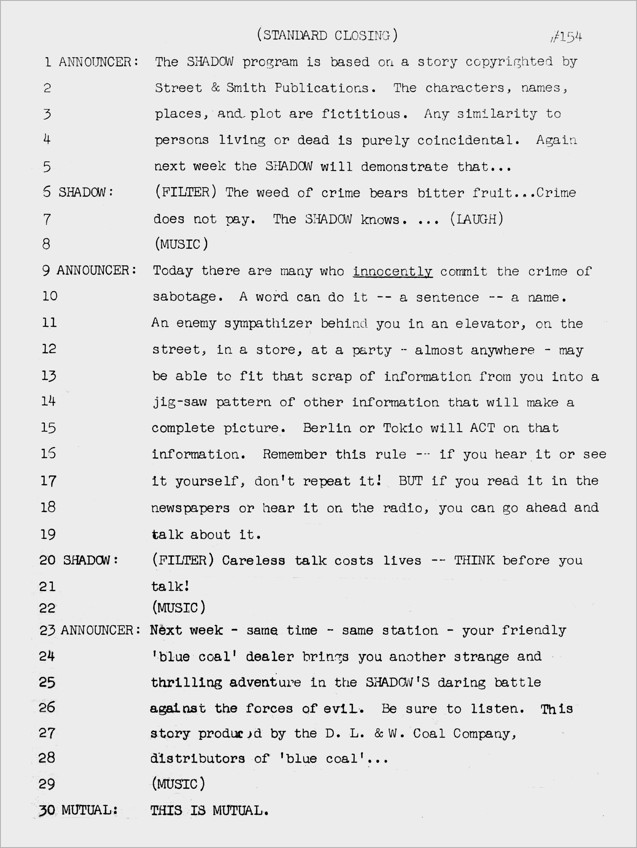
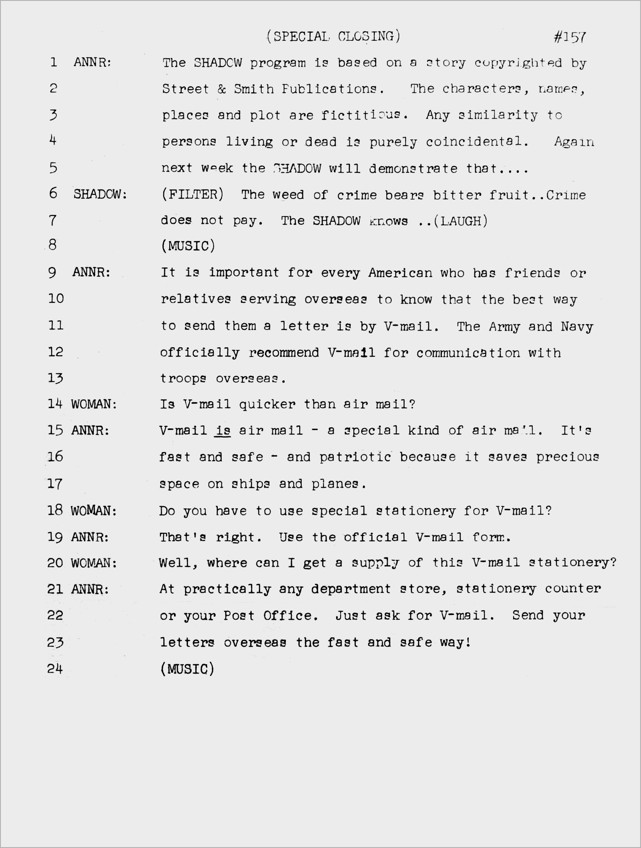
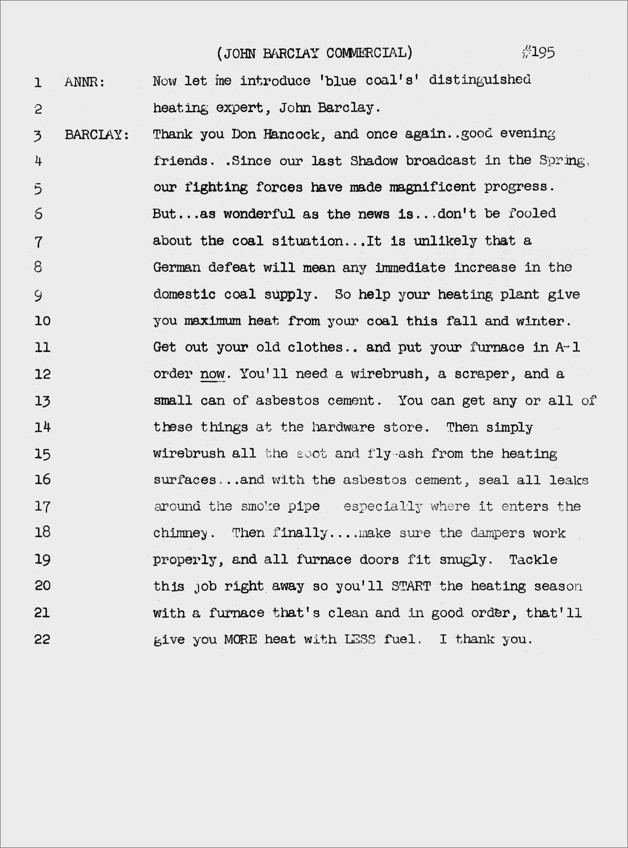
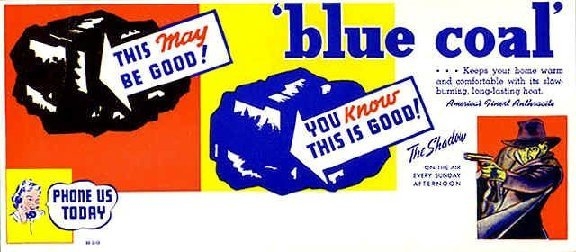
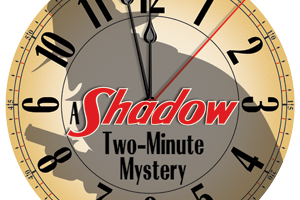
Besides V-mail, there were V-discs, special recordings of music from such artist as Fats Waller, Perry Como and Duke Ellington sent to American fighting men around the world, so they could enjoy the sounds of home they loved.
So, what made V-discs different from regular old records? The 78 rpm kind that was standard at the time?
V-discs were 12-inch 78-rpm discs made specifically to boost morale of troops overseas. Since they were recorded and pressed for the war effort, they weren’t supposed to be released commercially in the U.S., and, I think, destroyed so they couldn’t compete with commercial discs. But a large number survived. I’ve downloaded a fair number, and many of them have special messages recorded by the artists thanking troops for their efforts in WWII.
Interesting! The old regular 78s were 10 inches, I believe, so the V-discs were a bit bigger, then. Assuming they still used the same 3 mil groove as the commercial 78s, they would hold a bit more, in terms of recording length. I wonder why that extra time was needed. Why not just go with a more standard 10 inch disc? I’m sure there was a logical reason, but it escapes me at the moment. Anyone care to weigh in, here?